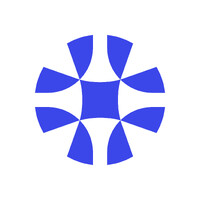The Hidden Struggles of Europe’s Startup Founders: A Journey Beyond the Spotlight
April 10, 2025, 5:10 pm
RespiQ
Location: Netherlands, North Holland, Amsterdam
Employees: 1-10
Founded date: 2019
Total raised: $4.38M
In the world of startups, the glimmer of success often overshadows the grit and grind that goes into building a tech company. A recent study by Antler, a leading venture capital firm, reveals the stark reality faced by over 120 founders across Europe. The findings are a wake-up call, shedding light on the unseen toll of entrepreneurship.
Seventy-two percent of founders describe their journey as the hardest thing they’ve ever done. The pressure is relentless. Many founders clock in over 60 hours a week, with nearly one in five pushing past the 80-hour mark. This is not just a job; it’s a lifestyle. In Germany, the statistics are even more staggering, with 94% of founders working over 60 hours weekly. The narrative that European founders lack the hustle of their American counterparts is being rewritten.
The sacrifices are profound. Founders often trade time with loved ones for the pursuit of their dreams. Sixty-one percent report missing out on family time, while 36% take salary cuts. The emotional toll is equally heavy. Founders wrestle with burnout and self-doubt, often feeling isolated in their struggles. The pressure to succeed can keep them awake at night, as they juggle the weight of their decisions.
Despite these challenges, a remarkable 98% of founders express love for their work. Only 4% cite financial gain as their primary motivation. Instead, they are driven by a desire to create something meaningful. The chance to innovate, to make a positive impact, and to prove their capabilities fuels their passion. This is not just about building a business; it’s about building a legacy.
The emotional landscape of a founder is complex. Many face skepticism from family and friends. Sixty-two percent report that their loved ones question their decision to leave stable careers. The leap into entrepreneurship is often met with doubt, both from within and outside. Yet, the journey is transformative. Founders learn to navigate uncertainty, turning challenges into opportunities for growth.
The sacrifices made by founders are often invisible to the outside world. The headlines celebrate the successes, but the sleepless nights and personal risks remain hidden. Danyal Özdüzenciler, co-founder of Capsa AI, highlights this disconnect. Founders pour their hearts and souls into their ventures, yet their resilience often goes unrecognized. The emotional and mental toll is significant, and many founders are learning the importance of self-care and boundary-setting.
As the landscape evolves, founders are adapting. They are discovering ways to protect their mental health while maintaining performance. Managing energy rather than time becomes a priority. The realization that sustainability trumps short bursts of productivity is a game-changer. Founders are learning to say no, to delegate, and to seek support from mentors and peers.
The narrative around founders is shifting. It’s not just about the end goal; it’s about the journey. The road is fraught with challenges, but it’s also filled with opportunities for personal and professional growth. Founders are beginning to advocate for recognition that reflects their contributions. They seek practical support systems that acknowledge the realities of building a company from the ground up.
The conversation around mental health in entrepreneurship is gaining traction. Investment firms are recognizing the importance of nurturing founders. Initiatives like Masawa, which focuses on mental health, and Cherry Ventures’ coaching programs are steps in the right direction. These efforts aim to create healthier work environments and support systems for founders.
Alan Poensgen from Antler draws a compelling comparison. In Europe, you’re more likely to be an Olympic medalist than a unicorn founder. Both require immense ambition and resilience, yet the recognition differs vastly. Olympic athletes are celebrated for their achievements, while founders often navigate their journeys in silence. It’s time to change this narrative.
The emerging generation of founders is poised to redefine success. They are not just chasing financial rewards; they are driven by purpose. The desire to create, innovate, and impact lives is at the core of their mission. This shift in mindset is crucial for the future of entrepreneurship in Europe.
In conclusion, the journey of a startup founder is a tapestry woven with threads of ambition, sacrifice, and resilience. The challenges are real, but so are the rewards. As the landscape evolves, it’s essential to recognize and support the individuals behind the headlines. Their stories deserve to be told, not just for their successes, but for the grit and determination that fuels their journeys. The future of European startups hinges on understanding the true cost of entrepreneurship and fostering an environment where founders can thrive.
Seventy-two percent of founders describe their journey as the hardest thing they’ve ever done. The pressure is relentless. Many founders clock in over 60 hours a week, with nearly one in five pushing past the 80-hour mark. This is not just a job; it’s a lifestyle. In Germany, the statistics are even more staggering, with 94% of founders working over 60 hours weekly. The narrative that European founders lack the hustle of their American counterparts is being rewritten.
The sacrifices are profound. Founders often trade time with loved ones for the pursuit of their dreams. Sixty-one percent report missing out on family time, while 36% take salary cuts. The emotional toll is equally heavy. Founders wrestle with burnout and self-doubt, often feeling isolated in their struggles. The pressure to succeed can keep them awake at night, as they juggle the weight of their decisions.
Despite these challenges, a remarkable 98% of founders express love for their work. Only 4% cite financial gain as their primary motivation. Instead, they are driven by a desire to create something meaningful. The chance to innovate, to make a positive impact, and to prove their capabilities fuels their passion. This is not just about building a business; it’s about building a legacy.
The emotional landscape of a founder is complex. Many face skepticism from family and friends. Sixty-two percent report that their loved ones question their decision to leave stable careers. The leap into entrepreneurship is often met with doubt, both from within and outside. Yet, the journey is transformative. Founders learn to navigate uncertainty, turning challenges into opportunities for growth.
The sacrifices made by founders are often invisible to the outside world. The headlines celebrate the successes, but the sleepless nights and personal risks remain hidden. Danyal Özdüzenciler, co-founder of Capsa AI, highlights this disconnect. Founders pour their hearts and souls into their ventures, yet their resilience often goes unrecognized. The emotional and mental toll is significant, and many founders are learning the importance of self-care and boundary-setting.
As the landscape evolves, founders are adapting. They are discovering ways to protect their mental health while maintaining performance. Managing energy rather than time becomes a priority. The realization that sustainability trumps short bursts of productivity is a game-changer. Founders are learning to say no, to delegate, and to seek support from mentors and peers.
The narrative around founders is shifting. It’s not just about the end goal; it’s about the journey. The road is fraught with challenges, but it’s also filled with opportunities for personal and professional growth. Founders are beginning to advocate for recognition that reflects their contributions. They seek practical support systems that acknowledge the realities of building a company from the ground up.
The conversation around mental health in entrepreneurship is gaining traction. Investment firms are recognizing the importance of nurturing founders. Initiatives like Masawa, which focuses on mental health, and Cherry Ventures’ coaching programs are steps in the right direction. These efforts aim to create healthier work environments and support systems for founders.
Alan Poensgen from Antler draws a compelling comparison. In Europe, you’re more likely to be an Olympic medalist than a unicorn founder. Both require immense ambition and resilience, yet the recognition differs vastly. Olympic athletes are celebrated for their achievements, while founders often navigate their journeys in silence. It’s time to change this narrative.
The emerging generation of founders is poised to redefine success. They are not just chasing financial rewards; they are driven by purpose. The desire to create, innovate, and impact lives is at the core of their mission. This shift in mindset is crucial for the future of entrepreneurship in Europe.
In conclusion, the journey of a startup founder is a tapestry woven with threads of ambition, sacrifice, and resilience. The challenges are real, but so are the rewards. As the landscape evolves, it’s essential to recognize and support the individuals behind the headlines. Their stories deserve to be told, not just for their successes, but for the grit and determination that fuels their journeys. The future of European startups hinges on understanding the true cost of entrepreneurship and fostering an environment where founders can thrive.


